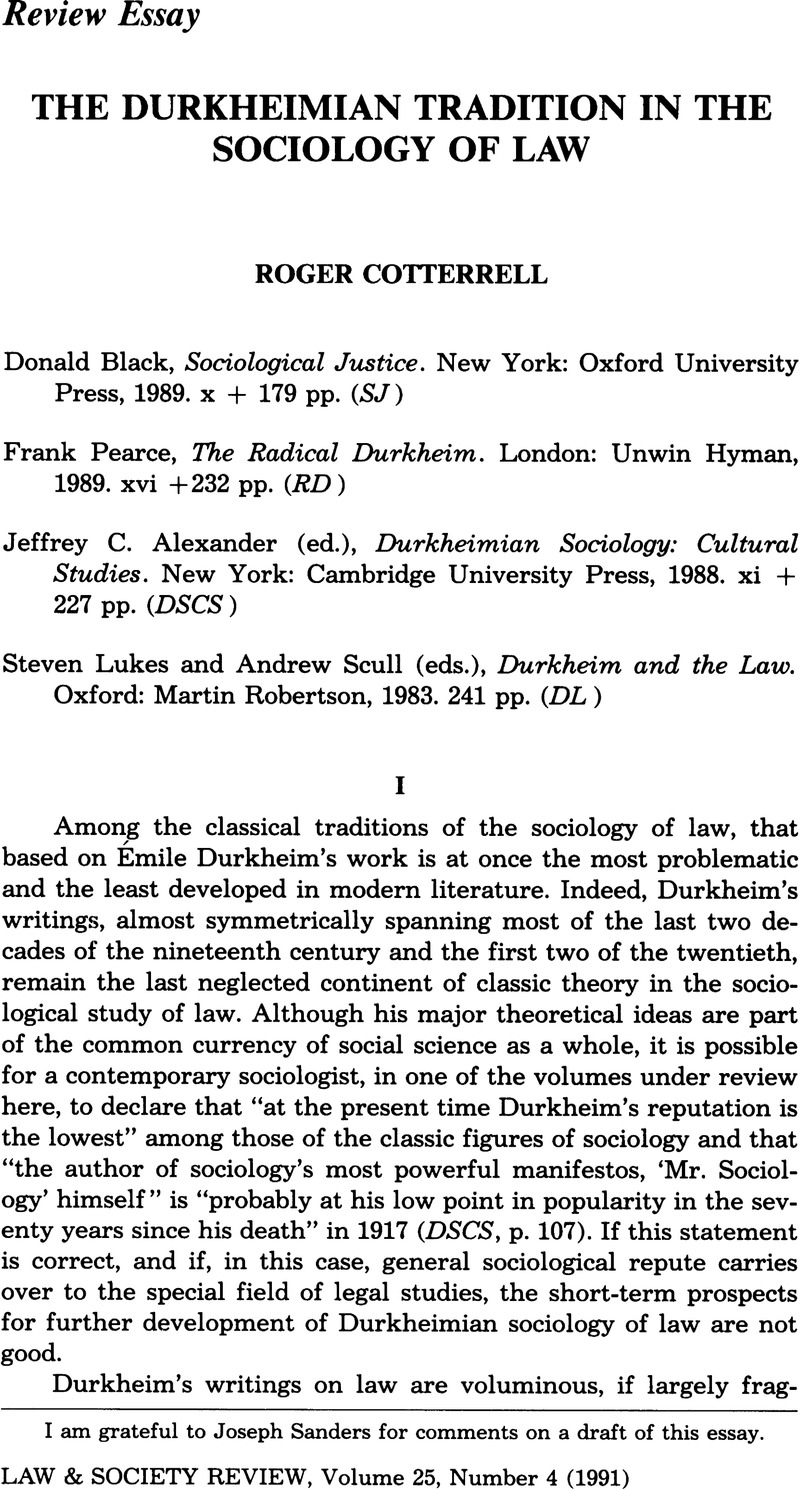Crossref Citations
This article has been cited by the following publications. This list is generated based on data provided by Crossref.
Emmelman, Debra S.
1994.
The Effect of Social Class on the Adjudication of Criminal Cases: Class‐linked Behavior Tendencies, Common Sense, and the Interpretive Procedures of Court‐appointed Defense Attorneys.
Symbolic Interaction,
Vol. 17,
Issue. 1,
p.
1.
Gibbs, Jack P.
2003.
A Formal Restatement of Durkheim's “Division of Labor” Theory.
Sociological Theory,
Vol. 21,
Issue. 2,
p.
103.
2006.
Child Homicide.
p.
245.
2011.
Endangered Children.
p.
223.
Villegas, Mauricio García
and
Lejeune, Aude
2011.
La sociologie du droit en France : De deux sociologies à la création d'un projet pluridisciplinaire ?.
Revue interdisciplinaire d'études juridiques,
Vol. Volume 66,
Issue. 1,
p.
1.
Kojder, Andrzej
and
Cywiński, Zbigniew
2014.
Socjologia prawa. Główne problemy i postacie.
Přibáň, Jiří
2016.
Symbolic Legislation Theory and Developments in Biolaw.
Vol. 4,
Issue. ,
p.
105.
García-Villegas, Mauricio
2016.
A Comparison of Sociopolitical Legal Studies.
Annual Review of Law and Social Science,
Vol. 12,
Issue. 1,
p.
25.
Bucholc, Marta
2022.
The Palgrave Handbook of the History of Human Sciences.
p.
1.
Bucholc, Marta
2022.
The Palgrave Handbook of the History of Human Sciences.
p.
651.





